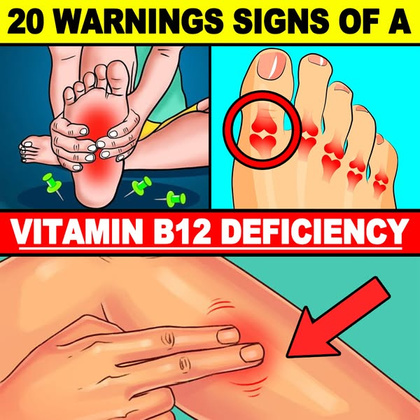
Understanding Vitamin B12 and Its Importance
Vitamin B12, also known as cobalamin, is a water-soluble vitamin that plays a critical role in several bodily functions. It is integral to the formation of red blood cells, DNA synthesis, and the maintenance of proper nerve function. Being part of the B-vitamin family, it is essential for energy production and supports the metabolism of every cell in the human body. Sufficient levels of Vitamin B12 contribute to the overall health and wellbeing of individuals, highlighting the necessity of incorporating adequate amounts into one’s diet.
Rich dietary sources of Vitamin B12 include animal products such as meat, fish, dairy, and eggs. This essential nutrient is notably difficult to obtain from plant sources, which makes it especially vital for vegetarians and vegans to seek fortified foods or supplements. The recommended daily intake of Vitamin B12 varies by age, lifestyle factors, and health status; for most adults, it is approximately 2.4 micrograms per day. It is worth noting that specific populations, such as pregnant or breastfeeding women, may require higher amounts to support their physiological needs.
A deficiency in Vitamin B12 can lead to a range of health issues, particularly affecting the nervous system and blood cell formation. Symptoms may include fatigue, weakness, and neurological changes such as numbness or tingling. Those at increased risk for Vitamin B12 deficiency include the elderly, individuals with certain gastrointestinal disorders, and those on restricted diets. Consequently, awareness of Vitamin B12’s significance, along with monitoring levels through dietary intake or supplementation, becomes crucial for maintaining optimal health and preventing deficiency-related complications.
Common Warning Signs of Vitamin B12 Deficiency
Vitamin B12 deficiency can manifest through various symptoms, impacting both physical and mental health. Understanding these warning signs is crucial for early diagnosis and treatment. Here, we explore twenty common signs and symptoms associated with insufficient levels of Vitamin B12.
One of the most prevalent symptoms is fatigue. This occurs due to the vitamin’s role in red blood cell production, which is essential for oxygen transport throughout the body. When levels are inadequate, individuals often feel persistently tired, even after adequate rest. Another significant warning sign is pallor or a pale complexion, reflecting the reduced red blood cell count caused by a deficiency.
Neurological changes are also common. Tingling sensations or numbness, particularly in the hands and feet, can occur when Vitamin B12 levels drop. This may be due to nerve damage or dysfunction relating to vitamin insufficiency. Additionally, muscle weakness and coordination difficulty can arise, leading to an increased risk of falls.
Memory issues and cognitive decline represent serious symptoms linked to Vitamin B12 deficiency. Insufficient levels can affect mental clarity and memory retention, often resulting in confusion or forgetfulness. Mood disturbances, including anxiety and depression, are also associated due to the vitamin’s crucial role in neurotransmitter synthesis.
Other warning signs include glossitis, characterized by a swollen and painful tongue, along with mouth ulcers and a burning sensation. Visual disturbances may result from nerve damage affecting the optic nerve, while heart palpitations can occur due to altered heart function stemming from anemia. Shortness of breath is also common, particularly during physical exertion.
Moreover, gastrointestinal issues such as nausea, diarrhea, or constipation may arise, compounded by potential weight loss. Recognizing these symptoms is essential, as early intervention can reverse the effects of Vitamin B12 deficiency and enhance overall health.
Risk Factors for Vitamin B12 Deficiency
Vitamin B12 deficiency can result from a variety of risk factors that impact an individual’s ability to absorb or obtain adequate amounts of this essential nutrient. One of the primary contributors is dietary choices. Individuals following strict vegan or vegetarian diets may be at higher risk since vitamin B12 is predominantly found in animal products. Therefore, those who do not consume meat, dairy, or eggs must seek alternative sources or consider supplementation to maintain adequate levels of this vital nutrient.
Age also plays a significant role in the risk of developing a vitamin B12 deficiency. As people age, their gastrointestinal system may become less efficient in absorbing nutrients, including vitamin B12. This decline can lead to reduced intrinsic factor production, a protein essential for vitamin B12 absorption in the gut. Consequently, older adults may need to monitor their vitamin B12 status more closely and may benefit from dietary adjustments or supplementation.
Gastrointestinal disorders can further exacerbate the risk of vitamin B12 deficiency. Conditions like celiac disease, Crohn’s disease, or atrophic gastritis can impair nutrient absorption, making it difficult for individuals to obtain adequate vitamin B12 through their diet. These disorders often disrupt the normal functioning of the digestive tract, highlighting the importance of seeking medical advice for those experiencing gastrointestinal symptoms.
Certain medications can also interfere with the absorption of vitamin B12. Common drugs such as proton pump inhibitors and metformin can affect the body’s ability to utilize vitamin B12. Individuals taking these medications should consult healthcare professionals to assess their risk and consider monitoring their vitamin B12 levels regularly.
Understanding these risk factors is crucial for proactive health management. By being aware of their own dietary habits, age-related changes, potential gastrointestinal issues, and medications, individuals can take steps to ensure they maintain optimal vitamin B12 levels.
Prevention and Treatment of Vitamin B12 Deficiency
Preventing vitamin B12 deficiency requires a proactive approach, focusing on diet, supplementation, and regular health assessments. Individuals should prioritize dietary sources that are abundant in this essential nutrient. Common foods rich in vitamin B12 include animal products such as meat, fish, eggs, and dairy. For those following vegetarian or vegan diets, it is crucial to incorporate fortified foods like plant-based milks, cereals, and nutritional yeast, or consider supplementation to meet daily requirements.
Supplementation is an effective method to ensure adequate intake, particularly for individuals at higher risk of deficiency, such as the elderly, pregnant women, or those with specific medical conditions affecting absorption. Vitamin B12 supplements are available in various forms, including oral tablets, sublingual solutions, and injections. Consultation with a healthcare provider can help determine the most appropriate method and dosage based on individual health status and dietary habits.
Discussing nutritional deficits with healthcare providers is paramount to effectively prevent and treat vitamin B12 deficiency. Regular blood tests can help monitor levels to catch any potential deficiencies early. In some cases, healthcare practitioners may recommend routine screenings, particularly for those with existing risk factors such as gastrointestinal issues, or prior gastric surgeries that may impair absorption.
In addition to dietary adjustments and supplementation, lifestyle changes can play a vital role in maintaining sufficient vitamin B12 levels. Regularly incorporating nutritious meals, managing stress, and ensuring adequate sleep can all contribute to overall health and nutrient absorption. Individuals should educate themselves on the symptoms of deficiency, allowing them to recognize potential issues promptly. By taking these proactive steps, individuals can sustain their vitamin B12 levels and support their overall well-being.









